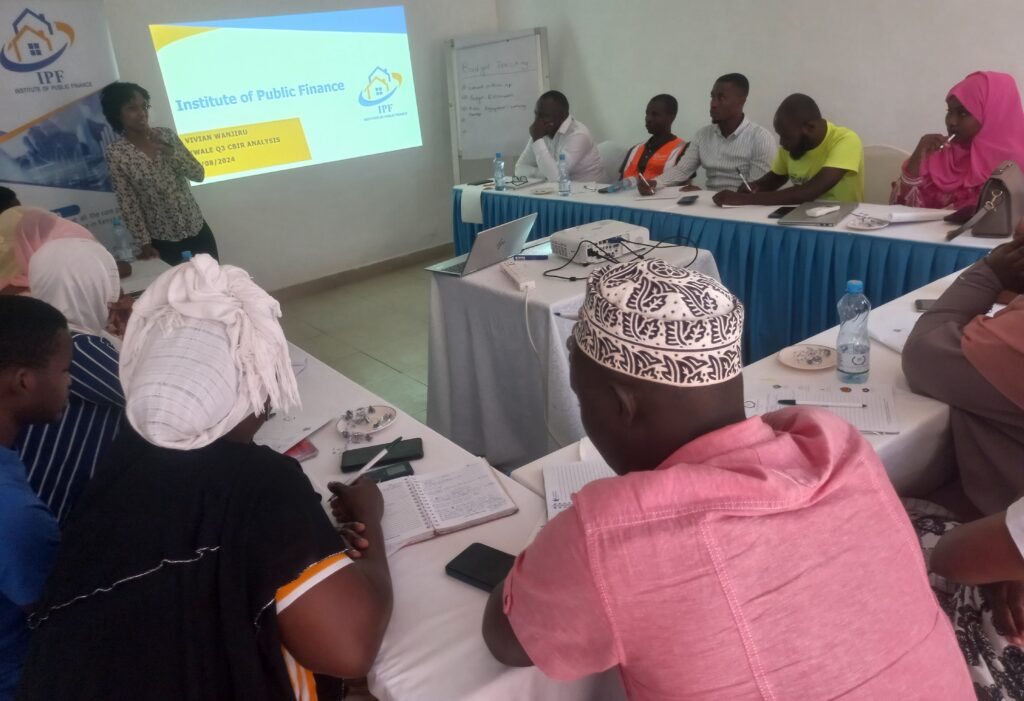By Alloys Musyoka
Kwale county government has been urged to seal all loopholes for the Own Source Revenue collections which has continued to fluctuate over the years.
In the first nine months of financial year 2022/23, the County received Kshs.4.75 billion as the equitable share of the revenue raised nationally, raised Kshs.272.09 million as own-source revenue and had a cash balance of Kshs.1.30 billion from Financial year 2021/22.
The total funds available for budget implementation during the period amounted to Kshs.6.32 billion, according to Kwale County, Revenue Performance in the First Nine Months of for the financial year 2022/23.
In the financial year 2023/2024 Kwale county recorded an increase in its own source revenue collection in its first nine months of Sh523.69.
In the first nine months of financial year 2023/24, the County received Kshs. 5.09 billion as an equitable share of the revenue raised nationally, Kshs. 369.65 million as additional allocations/conditional grants, had a cash balance of Kshs. 1.45 billion from Financial year 2022/23, and raised Kshs. 942.79 million as own-source revenue (OSR).
The raised OSR includes Kshs. 419.11 million as FIF and Kshs.523.69 million as ordinary OSR.
The total funds available for budget implementation during the period amounted to Kshs. 7.85 billion.
Kwale county youth focus community based organization officer Mesalim Ali Rambo said that there has been fluctuation of own source revenue collections trend in Kwale that need to be addressed.
Speaking on the sideline of the institute of public finance capacity building of women and youths on the county budgeting process, Mesalimu said that Kwale county government should focus on sealing the loopholes.
By doing so, she said that the county will meet its targeted amount annually adding that county expenditure compared to collection has continued to be higher.
Issues of untapped tourism ventures, vehicles parking and failure by who is who to pay county taxes were singled out as among those causing low amounts of own source revenue collection.
Kwale county CSOs saying there is a need to fully automate county revenue payments to ensure funds do now end up in the wrong hands.
“There was a time one of the revenue officers asked me to pay him Sh2000 cash instead of paying Sh4100 to the provided number for my business permit which I refused. I have not paid because I realized there are corruption gaps, “ said one of the participants.
The Institute of public finance has continued to strengthen the capacity of Kwale residents in the county budgeting process.
The program targets the youth and women groups to meaningfully engage county governments as well as making sure they are able to read and understand the County Implementation Review Reports.
Also youths and women groups get capacity building on analyzing County Implementation Review Reports and developing submissions to influence participation at the Assembly level (oversight).
According to 1st 9 months OCOB (Office of the Controller of Budget) report, in FY 2023/24 budget, the County Governments expected to receive Kshs.385.42 billion as the equitable share of revenue raised nationally, Kshs.46.36 billion as additional conditional allocations from the National Government and Development Partners, Kshs.80.78 billion from ordinary own sources of revenue and Facility Improvement Fund (FIF)/Appropriation in Aid (A-I-A), and utilize Kshs.42.26 billions of unspent funds carried forward from FY 2022/23.
The total available funds to the County Governments in the reporting period amounted to Kshs.316.91 billion against an annual target of 563 billion.
This amount comprised Kshs.223.55 billion as the equitable share of revenue raised nationally authorized for withdrawal from Consolidated Fund to respective County Revenue Funds (CRF) accounts by the Controller of Budget in line with Article 206(4) of the Constitution; Kshs.42.26 billion as cash balances from FY 2022/23; Kshs.41.40 billion as revenue mobilized from own source revenue streams, and Kshs.9.69 billion as balances in the Special Purpose Account.
The institute of public finance project officer Mulwa Kasangya said that the project aims to achieve fundamental, systemic change through a change in thinking in the domestic resource mobilization.
He said that the organization also target to capacity build women and youth on participatory budgeting towards more revenue generation from the extractive sector with more focus being on Public Expenditure Tracking Surveys (PETS), using the Quarterly Budget Implementation Review Reports (QBIRR) generated by the Office of the Controller of Budget (OCOB) as well as boosting their understanding on the implementation reports.


